A Perfect Match
A Perfect Match
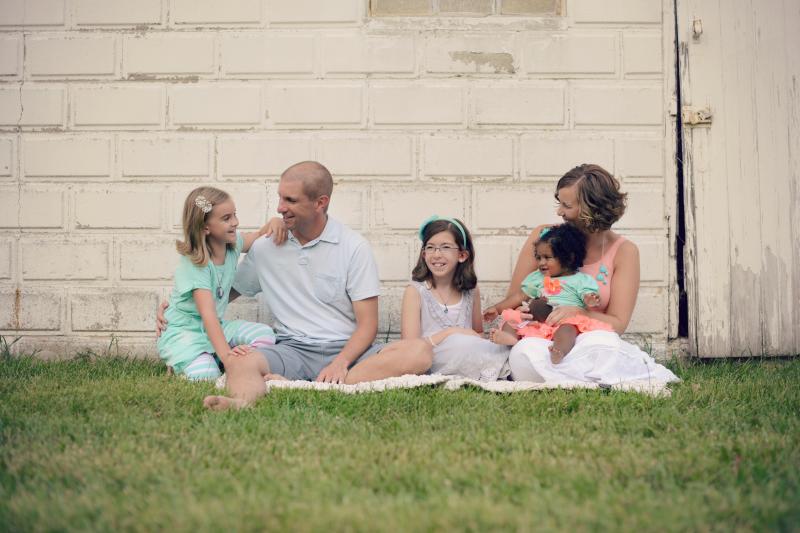
Michael and Karyn fought hard for their first two girls. Karyn had adenomyosis, a condition in which endometrial tissue moves into the muscular walls of the uterus. It took infertility medication and, over time, intensifying pain for them to have Ellie and Lydia biologically.
Karyn was pregnant a third time in 2008, but this time they lost the baby. It was a few months later that Karyn had to have a hysterectomy. Though unable now to do so biologically, Karyn began to feel that they were not done having children.
Michael didn’t feel ready to adopt. He had concerns prospective adoptive parents often have: What will it be like bringing a child from another family into ours? Will I be able to love this child as much as I love my biological children?
Four years passed as Michael and Karyn prayed. Then, in 2012, something changed.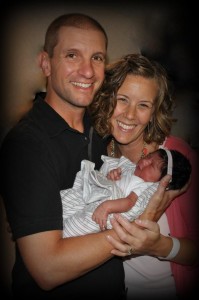
“We both began feeling God calling us strongly to adopt,” Karyn says. “Then things started happening super quickly!”
Michael and Karyn researched adoption agencies online. Some of the people they spoke with they found impersonal, getting not much more than stock responses to their emails. One agency told them it would be months before they could get an interview. They were willing to wait if they had to, but the challenge felt daunting. They kept looking.
Then they found Adoption Connections, and this time it was Michael who was the more enthusiastic one. “He was very adamant that the fee schedule was reasonable,” Karyn says. “We were not willing to go into debt. Michael felt like this was God’s way.
“When we met with Adoption Connections, we looked at each other and just knew.”
The Sullenbergers began the process, filling out paperwork and going through a home study. Once they were ready, it was only about six weeks before they received a call about a placement opportunity.
“It was so quick it caught us off guard,” Karyn says. She knew that many families wait for far longer.
Karyn was nervous about the first meeting with the birth parents. She wondered if they would like her and Michael. She hoped she wouldn’t say the wrong thing.
She and Michael were in for a wonderful surprise.
The similarities between the couples were uncanny. Karyn and the birth mother were both extroverts, loved to talk, easygoing. Michael and the birth father were alike as introverts. The women were both passionate about the medical field, Karyn a nurse and the birth mother planning to study nursing in school. Similarly, Michael is a scientist and the birth father was a biochemistry student. The couples even shared the same allergies.
“They’re like us years ago,” Karyn says. “It was so emotional. I was crying, she was crying. We all started to fall in love with the relationship we had.”
The birth mother invited Karyn to all her doctor appointments. She got to be there for the ultrasound, and was there in the delivery room when Josephine was born.
Since then, Josephine’s birth parents have continued to be a part of her life. This is what is referred to as an “open adoption”, in which both parties agree to maintain regular contact.
Not every adoptive family and birth family is comfortable with the degree of openness the Sullenbergers have with Josephine’s birth parents. Karyn feels that what they have is very special.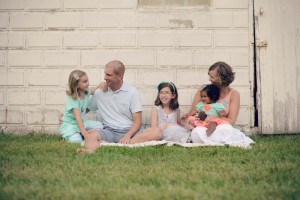
“When we were talking about an open relationship, we had no idea what it would mean,” Karyn says. “We take it as it comes. As long as it’s working for Josephine, great!”
Karyn describes the birth parents as two of the most selfless people she and Michael have ever met. She is certain that Josephine will never question her birth parents’ love.
A year later, the Sullenbergers are enjoying life. Karyn says her two older daughters “adore” Josephine. They are always concerned about her, acting like little mamas to their baby sister.
Michael recalls having concerns at first about how adopting a biracial child would be perceived by society, friends and family. Those worries have all but vanished. “I resolved that if people – or even family – judge us negatively for adopting her, that would be their issue to bear, not mine,” he says.
The Sullenbergers are growing accustomed to fielding blunt questions. People will ask them where Josephine is adopted from. They assume she is from another country, and are surprised when they tell them Josephine is from Indiana. Children will ask why Josephine has a different skin color and how much adoption costs (to which Karyn replies, “That’s personal!”).
Karyn says she has been reading about adoption so she feels more prepared to answer these questions, but even if she struggles, she always enjoys these opportunities to tell her family story.
“I had hard pregnancies and difficult deliveries,” she recalls, referring to the complications that came as a result of her adenomyosis. “I always considered adoption as a second-best option, but after going through this, I see it was like God intricately laid these plans from before we even knew. I was able to have the experience of having a baby without going through the pain. I had no idea we could have the experience we did, the outpouring of love from the birth parents.
“Adopting was not only just as good, but in many ways, it was better!”
Michael and Karyn continue to enjoy the relationship they have with Josephine’s birth parents. They are excited that as she gets older she will know that her birth parents made the decisions they did out of love for her.
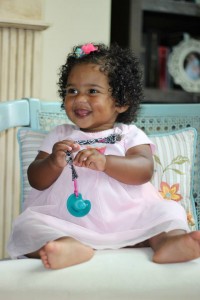 Michael describes the blessing of seeing the desires he had about the adoption coming to fruition. “I knew what I hoped it would be – Josephine to be healthy and loved by our families as much as she is by us, for feelings of peace between the birth parents, our families and ourselves. Those things have been borne out, and I feel very blessed in that regard.
Michael describes the blessing of seeing the desires he had about the adoption coming to fruition. “I knew what I hoped it would be – Josephine to be healthy and loved by our families as much as she is by us, for feelings of peace between the birth parents, our families and ourselves. Those things have been borne out, and I feel very blessed in that regard.
“She has been an enormous blessing. She adds a new and unique element to our family. I can’t imagine life without her!”
The Sullenbergers want those who are thinking of adopting to know how important prayer has been in the process. It is a key part of their lives as they continue to ask God to guide their hearts through whatever he has planned for them.
Karyn considers the question, “Am I going to love my adopted child as much as the children I have now?” to be akin to asking if you’ll love a second child like a first.
“There is no difference in the amount of love we have for Josephine,” she says, just as there is no difference in the love she has for her first daughter compared with her second.
Karyn says the addition to her family does have an effect on the collective love she has for her children, however.
“It just keeps growing. It’s exponential!”
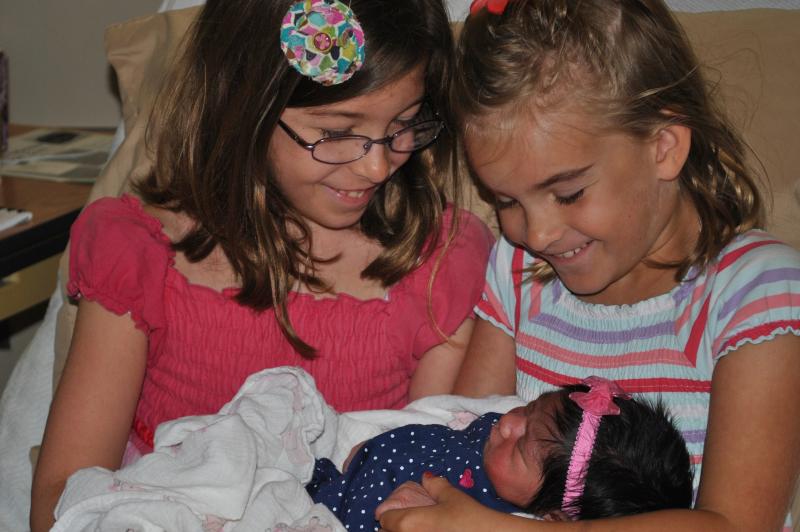
-Written by Matt Bloom



